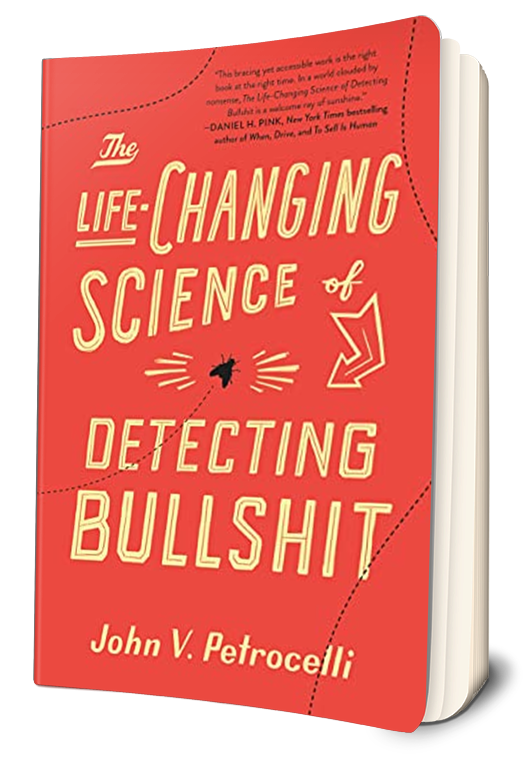The Life-Changing Science of Detecting Bullshit helps readers develop critical thinking abilities by using examples from everyday life to educate them how to avoid believing the lies and incorrect information that other people propagate.
Bullshit is to ignore the truth, the fundamental realities of life, and the time-tested, widely accepted universal truths in favor of a collection of prejudices and illogical beliefs.

Bullshitting is not lying, so to speak; rather, it is ignoring the truth in all of its glaring simplicity. Many persons who do this are encountered throughout life. People enjoy gossiping and talking about things they don’t know.
Bullshit is commonly believed for three reasons.
Normal practise is to presume that the person speaking in front of you is telling the truth and that their account cannot possibly be fabricated. It’s also practical to make decisions based on information that already exists in your brain rather than considering alternative viewpoints. Unfortunately, you’ll need to reconsider this attitude for your own advantage.
There are often three reasons why people believe bullshit:
- It corresponds to their idealized perception of the world, their past experiences, and the knowledge already stored in their minds.
- Since it is the first time they have heard it, the brain immediately recognises it as being true.
- They rely too heavily on their sense of intuition and their capacity to spot BS.
Let’s say someone approaches you to compliment a car that looks amazing but is extremely expensive to maintain. Let’s also assume that this is your favourite vehicle. You instinctively believe it when someone tells you what a fantastic car it is and how all the advantages outweigh the disadvantages.
When we hear a piece of information for the first time, that’s another type of circumstance where we fall for bullshit. You can’t just ignore something you don’t understand, can you? Ideally, you shouldn’t dispute with that person, but always make sure to confirm the information provided. You’ll hate to hear this, but you’re not always right with your intuition.
When you refuse to accept the fact that your intuition isn’t always correct, you are more prone to receiving garbage
Generally speaking, when you don’t actively work to defend yourself from it, you have a far higher probability of falling for someone’s crap. It’s not a good situation to find yourself in if you let your guard down because then you’ll believe everything ridiculous that people tell you.
I’m not advocating that you shun your deep relationships or avoid all people, but you should always verify the information. For instance, many who bought into a Ponzi scheme believed they had found the opportunity that would make them billionaires, that their efforts were finally paying off, and that all their problems were resolved.
Their instinct was telling them to just go for it because they knew it had to be the right decision. Theoretically, the plot made sense, but the unexplored facets of this concept are what put so many individuals in debt.
You may increase your chances of success in your undertakings by using a good dose of intuition and being willing to double-check and research everything.
We are less prone to spout off when we are not required to express an opinion.
No matter how well-prepared they are, according to renowned psychologist Harry Frankfurt, individuals lie when asked for their opinions on a subject.
What’s even more intriguing is that we tend to do it much more often when we’re speaking to individuals who lack our level of expertise in a particular topic.
Simply said, we’re not that prone to bullshit if no one asks us for our opinion. As there is no pressure to contribute to a situation, our minds are not preoccupied with what to say to appear good when we leave.
Bullshit also originates from those who like to project their own expertise. They believe that their presumptions will become true if they can persuade more people to concur with them.
That’s not the case, though, with those who are truly knowledgeable. They typically steer clear of attempting to persuade others of their viewpoints because they are aware of the reality.
Final Review Of The Life-Changing Science of Detecting Bullshit Book
The science of detecting bullshit in reviews involves analyzing the language used in a review and evaluating factors such as the sentiment expressed, the credibility of the reviewer, and the consistency of the information provided. This can help determine if a review is genuine and trustworthy, or if it is biased, misleading, or potentially fake. Tools such as natural language processing and machine learning algorithms can assist in this process. However, it is important to keep in mind that no method is foolproof and a combination of different techniques may be necessary to accurately assess the credibility of a review.
If you really like this “The Life-Changing Science of Detecting Bullshit Book Summary“ by Growthex then you can also check out some more amazing posts which is freely available on this platform :
- Everyday Millionaires Book Summary | By Chris Hogan
- Homo Deus Book Summary By Yuval Noah Harari
- The 4 Disciplines of Execution Book Summary By Chris McChesney, Sean Covey, and Jim Huling
- Your Money Or Your Life Book Summary
- Die With Zero Book Summary
To Watch great book summary explanation videos in Hindi language then visit : THIS YOUTUBE CHANNEL
Get the most out of every book you read. Growthex.org provides free, high quality summaries of books to help you make the most of your reading time.
Unlocking the power of knowledge, one book at a time. Growthex.org – the home for free, high-quality book summaries. Learn something new today.